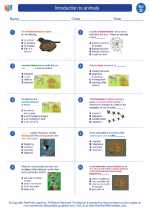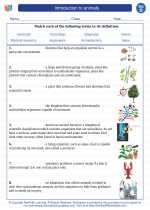Introduction to animals -> multicellular
Multicellular Organisms
Let's discuss multicellular organisms and what makes them different from unicellular organisms.
What is a multicellular organism?
A multicellular organism is an organism that is composed of more than one cell. These cells work together to perform various functions within the organism.
How do multicellular organisms differ from unicellular organisms?
Unlike unicellular organisms, which are made up of a single cell, multicellular organisms are made up of multiple cells. These cells are specialized to perform specific functions and work together to support the life of the organism as a whole.
Examples of multicellular organisms
Some examples of multicellular organisms include humans, animals, plants, and fungi. These organisms have complex systems of cells that enable them to carry out specialized functions and maintain their overall health and well-being.
Advantages of being multicellular
Being multicellular allows organisms to achieve larger sizes, have specialized cells that carry out specific functions, and exhibit a higher level of complexity in their biological systems. This enables multicellular organisms to adapt to a wider range of environments and carry out more complex activities.
Study Guide
.◂Science Worksheets and Study Guides Fourth Grade. Introduction to animals

 Worksheet/Answer key
Worksheet/Answer key
 Worksheet/Answer key
Worksheet/Answer key
 Worksheet/Answer key
Worksheet/Answer key
 Vocabulary/Answer key
Vocabulary/Answer key
 Vocabulary/Answer key
Vocabulary/Answer key
 Vocabulary/Answer key
Vocabulary/Answer key
 Vocabulary/Answer key
Vocabulary/Answer key
